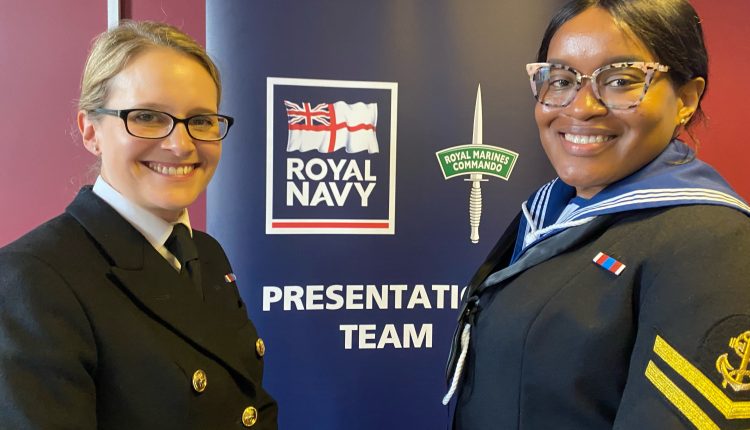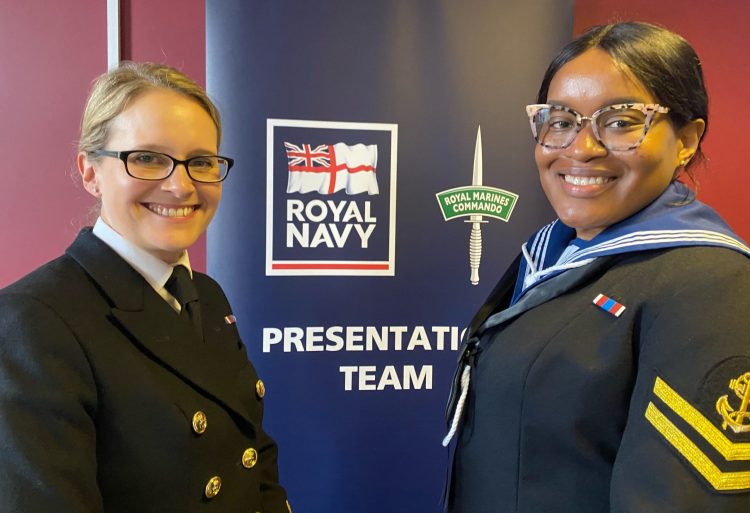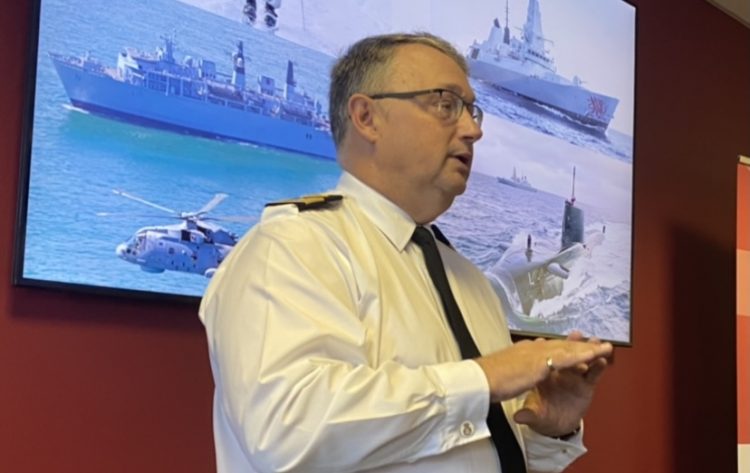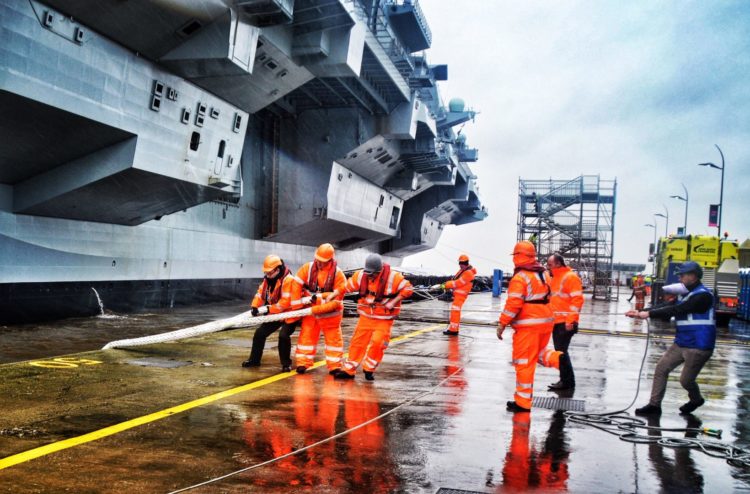
‘Even James Bond can’t keep up with us’
Royal Navy representatives address packed meeting of Liverpool city region maritime industry leaders at Mersey Maritime event and talk about the technological transformation of Britain’s senior service. Tony McDonough reports

So technically advanced is the present-day Royal Navy that even James Bond would struggle to keep up.
That’s according to Commodore Phillip Waterhouse, Royal Navy Regional Commander for Northern England. Addressing the Mersey Maritime Face-2-Face monthly event, He said: “10 years ago we were in danger of being left behind.
“There had been a real surge in innovation and we had to catch up quickly. The average age of those serving on board our ships is 23. So one of the things we did was to ask them because they offered a valuable insight into the latest technology.”
Phillip was one of a three-strong Royal Navy team who offered a compelling insight into the work of Britain’s senior service at the Mersey Maritime event in Birkenhead. He was joined by Lieutenant Commander Katherine Holmes and Leading Steward Loren Jackson from the Navy’s presentation team.
Katherine also talked about the rapid technological change she had seen in her time in the service. She explained: “Vessels we have in the fleet now are unrecognisable from ones I served on a few years ago.
“The Royal Navy has evolved. It is no longer about numbers of people. For example, in the past the work of Royal Marines was deploying a large number of people. Now they are operating in smaller units using the latest technology.
READ MORE: Maritime sector ‘must seize fantastic opportunities’
“We are in a world of constantly-changing threats and we are becoming very good at responding to those threats. The Future Command Force sees the Royal Marines operate in a much more agile way. Numbers may be smaller but the capability of each unit is getting exponentially better.”
Loren added: “In everything we do now we are leading the way in technological innovation. For example we are developing and using artificial intelligence to take rapid control of any situation.”
The Royal Navy, explained Loren, is “first and foremost a war-fighting operation”. She and Katherine explained at length the organisation’s extensive operations both in British waters and all around the world.
“Safe access to the sea is important for all of our lives,” said Katherine. “50% of our food and energy comes via the sea as well as 95% of our trade. And most of the data and connectivity that is such an important part of our daily lives comes via undersea cables.”
This is why, she added, the Royal Navy’s vessels are patrolling, monitoring and protecting British waters 24 hours a day, 365 days a year. They are also at the forefront of fighting crime, terrorism and piracy. The Royal Navy can stop more drugs getting into the UK in a single operation than the police can in a whole year.
Loren talked about how the Royal Navy could be rapidly deployed to help with international crises. It is now part of an international task force ensuring the safety of shipping in from the Red Sea to the Suez Canal.
“Maritime activities are critical to our everyday lives,” said Loren. “Activity in the North Atlantic is now at Cold War levels. As far north as the Baltic we are working with our NATO allies above and below the waves.”
Both spoke about Royal Navy activities protecting waters across the world – from the Indo-Pacific region where there are two permanent patrol vessels to the Antarctic where it protects the Falkland Islands.


In the Caribbean the Royal Navy is at the forefront of fighting the global narcotics trade to Gibraltar where a major presence protects the extract to the Mediterranean. In the Western Mediterranean there is a need to protect British assets from the build-up of Russian influence in Syria.
And, said Katherine, they are also offering ongoing support to the Ukrainian navy as the country continues to fight the invasion of Russian forces.
She also spoke about Britain’s fleet of nuclear submarines, adding: “Continuously for the past 53 years our submarines have been carrying our nuclear deterrent and they are permanently on patrol.”
Loren explained how the Royal Navy’s personnel was now as diverse as ever and utilised a wide range of skill sets from people across all of our communities.
Phillip, who is also a board member of Mersey Maritime, referred to the work the Royal Navy was doing with young people around STEM subjects (science, technology, engineering and mathematics) via University Technical Colleges (UTCs).
The audience at the event comprised representatives from across the maritime industry, which includes more than 33 sub-sectors. Katherine said one of the Royal Navy’s most important roles was to provide a platform for British businesses and technology across the world.
Those in attendance were urged to find out more about the Armed Forces Covenant. This is designed to ensure services and ex-service personnel and their families are treated fairly in wider society. Businesses can offer training and employment opportunities to people leaving the service who often possess valuable transferable skills.
